In the clear, warm waters of The Bahamas, corals form vibrant underwater ecosystems essential to marine life, local economies, and coastal resilience. However, coral reefs are at a critical turning point. Climate change, pollution, and diseases like Stony Coral Tissue Loss Disease (SCTLD) are threatening to erase these ecosystems, with some species on the brink of extinction. But a powerful tool in marine conservation—the coral gene bank—offers hope for preserving coral species and restoring reef health.
What is a Coral Gene Bank?
A coral gene bank is a scientific repository designed to store and safeguard the genetic diversity of coral species. Much like a seed bank for plants, coral gene banks collect, preserve, and catalog coral fragments, tissues, and genetic material. By storing these precious samples, we can ensure that endangered coral species will be available for research, restoration, and, eventually, replanting into their natural habitats.
One of the most ambitious efforts in this field is taking shape right here in The Bahamas. The Perry Institute for Marine Science (PIMS), in collaboration with Atlantis Paradise Island and the Atlantis Blue Project Foundation, the Government of The Bahamas, and the University of The Bahamas, is establishing The Bahamas Coral Gene Bank. Expected to be operational by the end of 2024, this initiative will address the immediate need to safeguard coral diversity and build a sustainable future for coral restoration in The Bahamas and the wider Caribbean.
Why Are Coral Gene Banks So Important?
The primary role of a coral gene bank is to preserve coral species that are facing extinction. For example, SCTLD—a fast-spreading disease that has devastated coral populations in the Caribbean—targets some of the most vital reef-building species. The Bahamas Coral Gene Bank will house corals susceptible to SCTLD, as well as strains that show signs of resistance. This genetic diversity is crucial for the future of reef restoration.
Gene banks also play a vital role in supporting coral adaptation to changing conditions. As ocean temperatures rise and water chemistry shifts, corals need to adapt quickly. By preserving corals with traits that make them resilient to warmer waters or higher levels of acidity, gene banks help create a pool of corals that can better withstand future environmental changes.
How Will The Bahamas Coral Gene Bank Work?
Once operational, The Bahamas Coral Gene Bank will collect corals and coral fragments from across Bahamian reefs, carefully cataloging each sample’s species, location, and condition. These fragments will then be preserved in controlled environments that mimic natural ocean conditions, ensuring the corals can grow and remain viable for long-term storage. Through advanced techniques like cryopreservation (freezing coral tissues at extremely low temperatures), researchers can store coral tissues for decades or even centuries, safeguarding coral diversity for future restoration projects.
The team at the Perry Institute for Marine Science is working closely with partners, including the Atlantis Blue Project Foundation, to prepare the coral gene bank as a global model for coral conservation. With a state-of-the-art facility nested in Atlantis Paradise Island and a passionate team of marine scientists, The Bahamas Coral Gene Bank will stand at the forefront of innovation in marine conservation.
Coral Gene Banks and Coral Restoration
When conditions are right, preserved coral fragments from gene banks can be used to restore reefs, rebuilding habitats that support thousands of marine species. Coral gene banks help create a “genetic library” from which corals can be selected and cultivated, enhancing coral resilience and biodiversity on restored reefs. Once operational, our gene bank will support local restoration projects, helping to provide critical habitats for fish and invertebrates and bolstering coastal protection for Bahamian communities.

How You Can Help
The battle to save coral reefs is urgent, but it’s one we can win with the right support. By getting involved with The Bahamas Coral Gene Bank, you can play an essential role in coral conservation. Donations to PIMS’ coral hub will help fund the development and future operation of The Bahamas Coral Gene Bank, enabling us to preserve coral species that may one day repopulate and strengthen Caribbean reefs. Together, we can ensure that future generations will experience the beauty and biodiversity of these underwater ecosystems.
The work of coral gene banks, like The Bahamas Coral Gene Bank, represents hope and resilience in the face of environmental challenges. With continued support and commitment, these efforts will be instrumental in ensuring that corals continue to thrive in our oceans for centuries to come. Join us in protecting the future of coral reefs—every contribution makes a difference.
Written by: Lily Haines | Perry Institute for Marine Science| lhaines@perryinstitute.org

